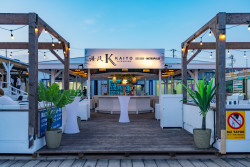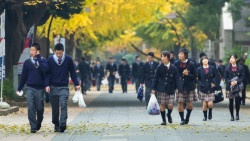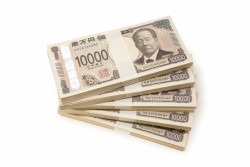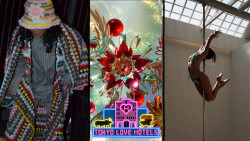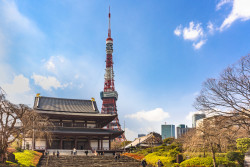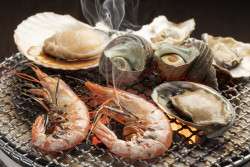
Originally published on metropolis.co.jp on October 2013
NEWS FROM THE LAB
- Scientists at the Riken research institute and the University of Tokyo have used the K supercomputer to “simulate global atmospheric conditions with the world’s greatest precision.”
- Researchers at the National Center of Neurology and Psychiatry have discovered that people suffering from dyslexia “show abnormal patterns of activity in two areas of the brain.”
- Authorities at the agriculture ministry announced a three-year, ¥800 million initiative “to gather evidence on the health benefits of Japanese cuisine.”
- Tokyo government officials released the results of a study which suggests that Adachi, Arakawa and Sumida wards would be most vulnerable in a major quake.
STOP THAT!

- Officials at the Nuclear Regulation Authority scolded the staff of a chemical company in Ibaraki for mistakenly treating “radioactive material as industrial garbage.”
- Officials at the Financial Services Agency told execs at Mizuho Bank to cease their dealings with “antisocial forces,” i.e., yakuza groups.
- All Nippon Airways officially retired its “Pikachu” jumbo jet, a Boeing 747 festooned with colorful paintings of Pokemon characters.
- Sentence of the Week: “This year between July 24 and Aug 9—the dates during which the Tokyo Olympics are to be held seven years from now—temperatures on 12 of those 17 days exceeded levels at which the Japan Sports Association recommends calling off athletic activities.”
HIGH TIME
- NPA officials say the number of criminal cases linked to so-called quasi-legal drugs has skyrocketed by more than 300 percent in the first half of 2013.
- Meanwhile, authorities at the justice ministry are doubling the number of counseling centers that offer “specialized courses to help young people get off drugs.”
- Authorities at the defense ministry have allocated ¥3.7 billion in next year’s budget to “to develop a new radar that can detect stealth fighters.”
- Engineers at Toyota unveiled a “Fun to Eco-Drive” program, which aims to make drivers more environmentally responsible by recording how they use their accelerators and brakes.
YOU DON’T SAY
- A team of Japanese researchers has found that “wines that give off a musty, unpleasant odor while one is drinking them do not actually have a scent.”
- Director Sion Sono won the “Midnight Madness” prize at the Toronto International Film Festival for his new feature, Why Don’t You Play in Hell?
- A Chinese graduate student in Osaka rescued a 9-year-old boy who had fallen into a swollen river during last month’s typhoon.
- Consumer affairs officials believe a recent surge in complaints about fabric softeners may be linked to the increased popularity of foreign brands, “which often have stronger fragrance than Japanese ones.”
WRAPPING UP…
- Researchers in Ishikawa say a pair of earthenware vessels dating to the 5th century AD are the oldest of their kind to have been found in Japan with inscriptions of kanji characters.
- Officials at Tokyo Disneyland and Tokyo DisneySea say the number of visitors during the April-September period—15,359,000—was the most ever.
- Executives at Fast Retailing Co, operator of the Uniqlo chain, announced their first shop in Australia—a 660m2 behemoth in central Melbourne to open next year.
- Bottom Story of the Week: “Popular ‘Ugly but Cute’ Dog Regains Health and Fur” (via The Asahi Shimbun)
Compiled from reports by AP, Japan Today, The Japan Times, Jiji, The Tokyo Reporter, The Mainichi, The Asahi Shimbun, The Japan News, AFP, Reuters and Kyodo
